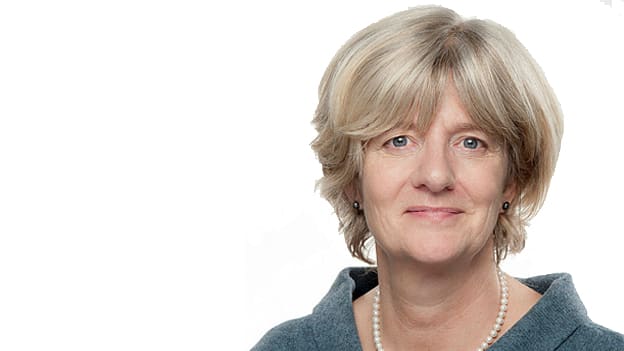Leaders should be prepared to listen: Professor Veronica Hope Hailey

Professor Veronica Hope Hailey is the Vice-President of the UK-based University of Bath and the Dean of its School of Management. With a passion for understanding the relationship between organizational change and individual transition, she has worked with large and mature organizations in collaborative research partnerships. She is named as one of the UK's Most Influential HR Thinkers and has also co-authored book on the theme ‘Exploring Strategic Change’. Her recent research has been on ‘Trustworthy Leaders’. In a conversation with People Matters, Professor Veronica shared some insights from her research and gave tips to be a trustworthy leader.
You have an extensive knowledge and experience, with a background in politics and history and then moving on to a management role and finally to building a career in academics. How has this journey been for you?
I studied history and politics as an undergraduate and then I worked for six years in commerce and in an NGO. Later, I pursued my masters and a Ph.D. while I had my first three children. The knowledge of history and politics provided me with a fantastic training and impacted the way I looked at complex situations in management academics. Then working for six years gave me practical insights of workplace functions and taught me how organizations are shaped and how the behavior of managers and leaders affects the organization and shapes the social society at large.
How has your own journey of transformation helped you in understanding and studying organizational change and people transformation?
Through my own journey, I learned that it is possible to transform yourself as a person at an individual level with support and development backed by ambition.
Speaking of transformation, how do you think the HR function has transformed over the years and what further innovation do you foresee?
Earlier HR was known as the personnel manager. It was considered an administrative function and required the professionals to have knowledge of things like the employment law, psychology, motivation and psychometric assessment. The basic administrative functions have now been turned into ‘e-functions’. Most of the conversation that happened with or through HR personnel is now done by the online. In fact, employment legislation can also be web-based. So, what has happened is a lot of routine work has been taken away. Secondly, a report in 2015-16 based on empirical research done in major organizations showed that the HR function is looked for its expertise in transformation and change.
Talking about the future, further innovation will be seen in people analytics as data analytics will affect every management function. Decision making will be enhanced and would be backed by strong evidence. This would also require the HR to have basic knowledge of data and capability to interpret the same for taking decisions. The consequence of this transformation is extremely positive as the strategies would be less subject to management fads and would rather be based on the hard evidence from data collected from within or outside the organization.
How can HR leaders prepare for this transformation?
The professional training of HR professionals has to change and the focus needs to be on building more analytical capabilities. They don’t have to be statistical experts but they should be able to interpret the data and be able to make judgments based on that. Secondly, the HR should understand the business and people have been saying this for years. The HR has to be empathetic to the needs of the business.
Your recent research has been on trustworthy leaders. Can you tell more about trustworthy leaders and your research?
For the research, I worked with 25 companies like E&Y, Unilever, and other family-owned business. I collected data and followed them through the global financial crisis. I analyzed how some companies were able to maintain trust among their employees during and after the financial crisis. When companies were restructured, jobs became redundant and a lot of divisions closed down, it was the quality of leaders and their management policies that made people trust them. What the leaders did differently was that they instilled a real sense of purpose in the work. For instance, Paul Polman took FMCG like Unilever and turned it into an organization where the overall focus is to promote environmental sustainability and lift people from poverty. When you visit their office, you can see everyone wearing badges showing which of the sustainable development their work is personally supporting. And that reflects how each person is personally supporting the cause and working together. Trustworthy leaders leave a legacy for next generation of both employees and customers. By acquainting the employees with the history of work the organization has done beyond profit and loss, leaders build a send of trust. The second aspect is in the context of the management practices, leaders who spent more time in the workplace and be visible ensure high trust. Lastly, it’s important to encourage open dialogue. Leaders should not patronize their employees and should always be prepared to listen.
What message would you like to give to the aspiring leaders?
Looking at the rapid changes in the world, leaders have to accept that they are under spotlight much more than they were before. The increased vulnerability requires them to be more accountable and responsible. If you aspire to become a trustworthy leader there are four key things you need to remember:
- Demonstrate your ability and competence
- Demonstrate benevolence towards employees and customers. Your actions should be directed to serve others.
- Show people that you are a leader with integrity. Have a set of values that shape and guide your decision making and communicate those values.
- Lastly, it’s essential that your efforts are consistent. Consistency will help in building the trust.













